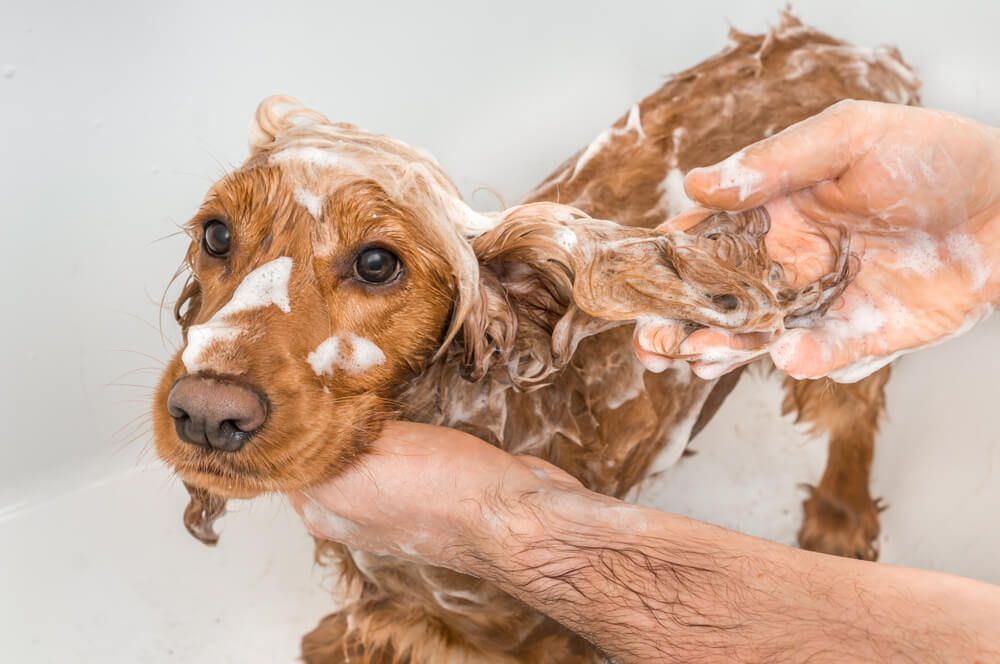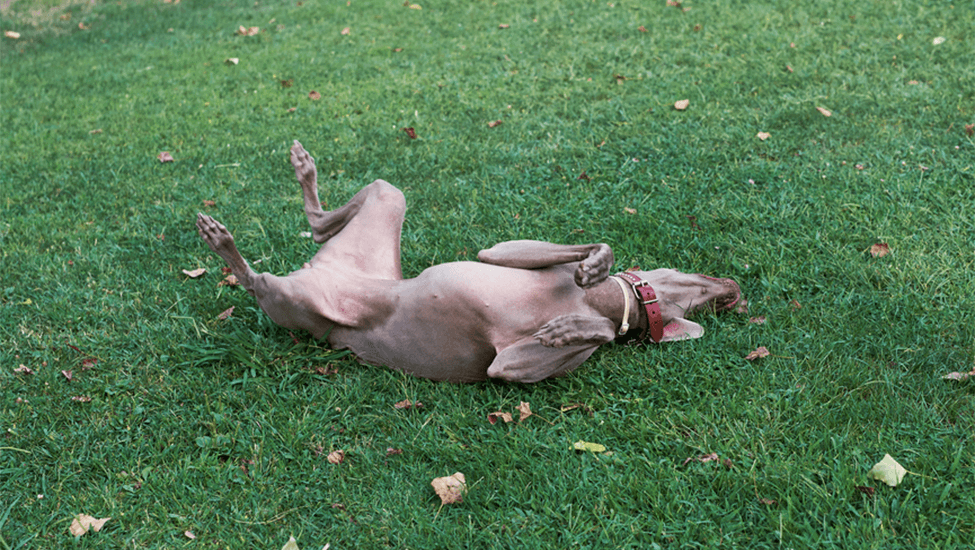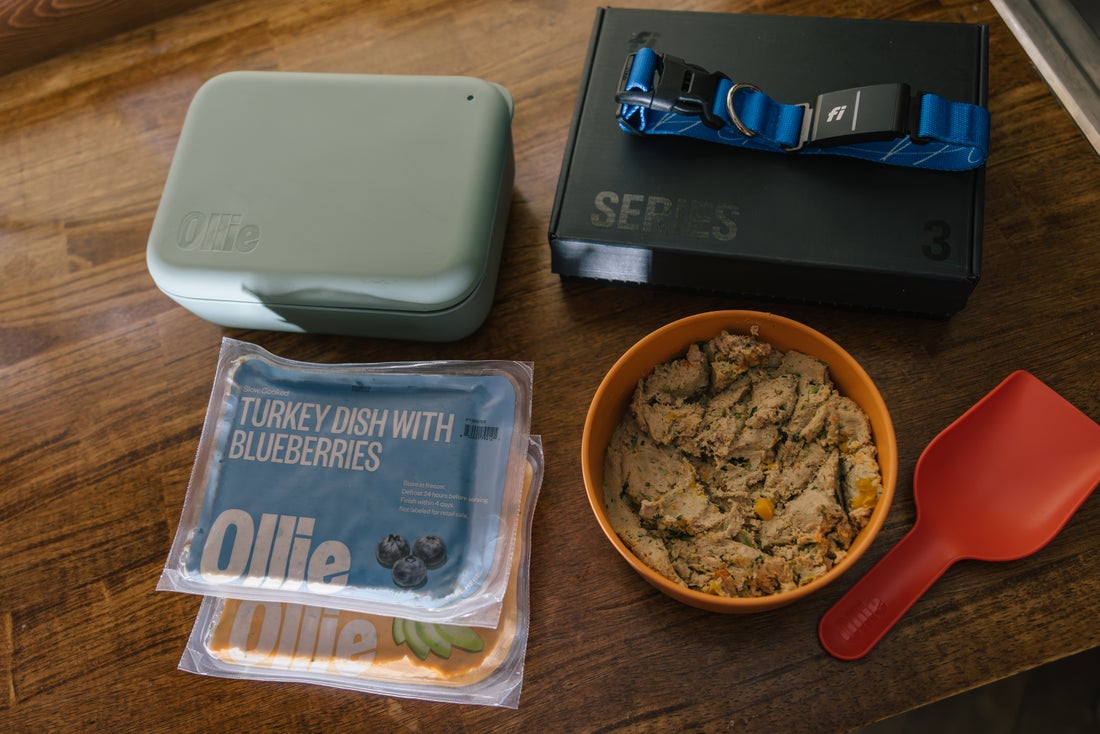Hey Ollie blog readers! We’re offering you an exclusive 60% OFF your starter box! Try now!
Got an itchy dog on your hands? If your dog’s skin is dry and itchy, it can drive you both bananas as you watch him drag himself back and forth across your carpet, desperately trying to make it stop. It’s normal for a dog to scratch from time to time, but if he seems overly bothered, here’s what you need to know.
Why is My Dog So Itchy?
If your dog is constantly scratching or licking, he’s probably suffering from itchy skin (also called pruritus). An itchy dog is a reaction to a symptom, not a problem in and of itself. There are a number of reasons a dog might be itchy, so it’s important to figure out what’s really bothering your pup first.
1. Overbathing or bathing with the wrong shampoo
While you do want to keep your pup clean, it is possible to overdo it. Most dogs only need to be bathed about once a month. This might come as a relief if your pup hates taking a bath! Some pups will need fewer baths in cold weather and a few more when it is warm as they might play outside or go swimming a bit more. If you are not sure how often your dog needs a bath or their skin is looking dry and you think you could be over bathing, consult your vet or a skilled groomer. Your vet or the groomer might ask you about what kind of shampoo you use for your dog and may recommend some alternatives. You could also consider a moisturizing mud like this one from Espree.

2. Allergies
If your pup suffers from allergies a symptom could be dry, itchy skin. You will have to do some detective work to figure out exactly what your pup is allergic to. It could be something like chicken in his food or it could be a shampoo, cleaning product you use in your home or something in nature like mold, pollen, grass or sap from a tree. It can take some work to figure out so don’t hesitate to call in a pro if you suspect allergies. Your vet may suggest you and your pup visit a specialist for testing to get to the bottom of it quickly.
3. Parasites
If your pup is being invaded by parasites, dry or irritated skin might be one sign. Whether it is due to an internal condition like worms or something in their skin like mites, dry skin can be a sign of something being off. If mites take over your pup’s skin they can cause a condition called mange.
4. Poor nutrition
In addition to food allergies, poor overall nutrition can lead to dry skin. If your dog is eating dry food with filler like corn, soy or wheat this could contribute to dry skin and a dull coat.
Even if this is not the case, you will want to make sure your pup’s food has enough fat, calories, carbs, protein and vitamins/minerals for their needs. You’ll also want to check to make sure your pup is getting enough food every day. If your dog is a picky eater or is having challenges with chewing due to dental pain or poor oral health, you can try wet or fresh food. You will also want to work with your vet to resolve oral issues where possible as that will help your pup eat.
Ollie makes several recipes of fresh food using different proteins so there is something for everyone. If your dog is allergic to chicken? Try the turkey, beef or lamb recipe. You can also speak with your vet about adding some fish oil or omega3 fatty acids to your dog’s diet for a nutrient boost and to help bring back the shine in his coat and moisture to his skin.
5. Change of seasons
Like you might get some drier than normal skin in the winter it is possible that your dog’s skin will also get dry. Consider using dog-specific lotion or moisturizer or adding a humidifier to your home to add back some moisture to the air. Visit the dog beach? Saltwater can also be drying so try to rinse your pup with fresh water after swimming and use a moisturizing shampoo as needed.
According to Dr. Emily Rothstein of the American College of Veterinary Dermatology, the most common causes of dry, itchy skin are flea allergies, environmental allergies (like pollens and house dust) and food allergies. Certain breeds, like Retrievers, Setters, and Terriers, are more affected, but all dogs are potentially prone.
If you have an itchy dog, the first thing to do is rule out a more serious issue. If dry, flaky skin itself is the problem, here are a few things you can do.
Natural Cures for an Itchy Dog

#1 Add Oils and Omega 3’s To Your Dog’s Diet
Coconut oil can improve your pup’s skin and coat quality and reduces allergic reactions. Let your pup lick some straight from the spoon or mix in a small amount into their food twice a day—start with a quarter teaspoon per day for small dogs and puppies and one teaspoon for large dogs, eventually you can work up to about one teaspoon per 10 pounds of body weight per day.
Dr. Rothstein also says that omega-3 fatty acids can be helpful in combating itchy skin: Olive oil is a great way to add them to your pup’s diet (around five to six drops in your pup’s food twice a day until you notice a difference and then reduce it to a few). Other great sources are flax seeds, fish oil, and sunflower oil.
#2 Eliminate Grains, Corn and Wheat From Your Dog’s Diet
Some dogs are allergic to corn, wheat, and other grains, which can cause irritated skin. Dr. Rothstein says the other most common allergens are proteins that dogs are exposed to. (Read: “Is Limited Ingredient Food Right for Your Dog?”) Eliminating these foods can help to treat and relieve reactions that may be causing your pup to have itchy skin. However, it’s important to talk to your vet before eliminating any food completely. Food allergies in dogs are rare, and it’s often not necessary to go completely grain-free, for example.
Many commercial pet foods are loaded with processed and genetically modified ingredients, which can irritate your dog’s skin, as well. A natural, low-processed diet (like Ollie’s) that is free of chemical preservatives and artificial fillers can help fight your pup’s itchy skin from the inside out.
#3 Try Natural Topical Treatments to Help Your Itchy Dog
Oatmeal is a reliable nourishing and moisturizing ingredient—it can also relieve irritations and balance pH levels, giving your dog immediate relief. You can use an oatmeal shampoo or make your own oatmeal rinse by grinding up oats in a blender until it reaches a flour-like consistency. Add the oatmeal mix to your dog’s bath water and mix thoroughly until it turns milky. Soak your pup then rinse them off gently.
Another great topical solution to calm your pup’s irritated skin is to make a baking soda paste that you can apply to the affected area. Just mix together a solution of baking soda and water in equal parts, creating a thick paste. Apply it to your dog’s skin where they are irritated, leave it on for 20 minutes and then rinse it off. Dr. Rothstein also reminds us that skin can be kept healthy with regular brushing and bathing. Read: “How Often Should You Give Your Dog a Bath?”
#4 Add Supplements To Your Dog’s Diet
If you’ve tried all of the above and your pup still has uncontrollable itchy skin, you might want to consider some supplements: Digestive enzymes help in the breakdown and absorption of food in your dog’s gut—and when they’re better able to absorb the nutrients and vitamins from their food, it can help prevent allergy symptoms.
Digestive enzymes also help your dog eliminate toxins and waste from their body, resulting in an overall healthy skin and coat. You can find digestive enzymes at your local health and pet foods stores, just make sure to buy vegetarian enzymes that are formulated for animals.
The Ollie blog is devoted to helping pet parents lead healthier lives with their pups. If you want to learn more about our fresh, human-grade food, check out MyOllie.com.
Tagged As:

The nutrition your dog needs,
the food they want.

Enjoying our articles? Subscribe our Newsletters and get new articles directly to your inbox
You might also like
9 October 2025
4 MINS READ
How Fresh Food Can Help Soothe Your Dog’s Allergies
As a pup parent, watching your dog suffer from the constant discomfort of allergies is always distressing. The endless scratching, irritated skin, and digestive upset can take a toll on your pup�…
by Ollie Pets
18 September 2025
4 MINS READ
Is Fresh Dog Food Easier to Digest?
Yes, fresh dog food is generally easier for dogs to digest than highly processed kibble. Because it’s made with whole ingredients, gently cooked, and free from unnecessary fillers, fresh food supp…
by Ollie Pets
18 September 2025
5 MINS READ
Can I Rotate Fresh Dog Food Flavors?
Yes, it’s safe to rotate fresh dog food flavors, and many dogs actually benefit from the variety. At Ollie, we offer multiple fresh recipes, like Beef, Chicken, Turkey, Lamb, and Pork so you can…
by Ollie Pets







